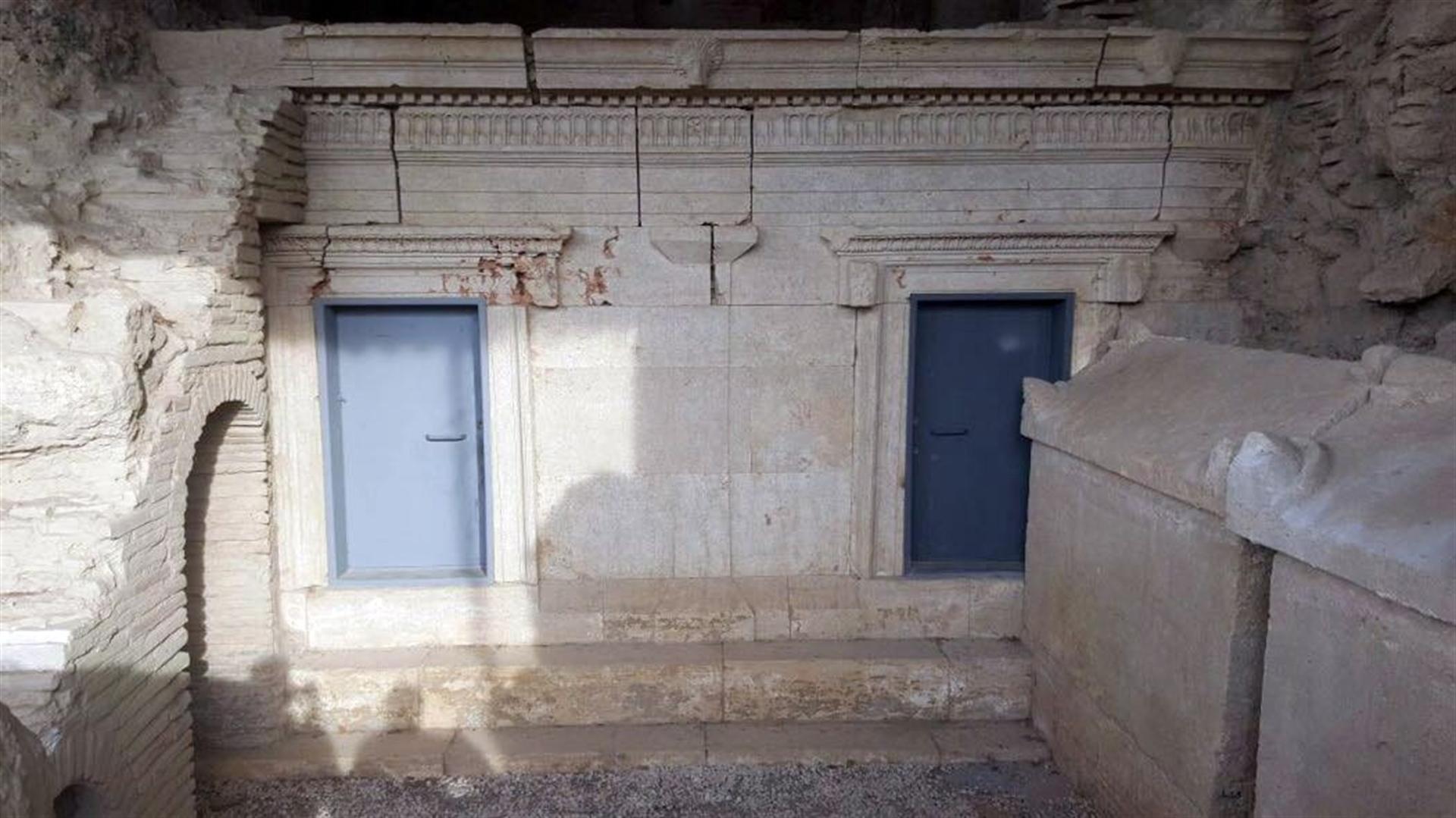
Iron gates have been installed to protect mosaics, with Oceanus and Medusa motifs, carved on historic walls unearthed during excavations in the western side of the necropolis in the ancient city of Perge.
Headed by Prof. Haluk Abbasoğlu of Istanbul University Faculty of Letters’ archaeology department, excavations and restorations have been continuing in one of the largest ancient cities in the world: Perge in the southern province of Antalya. The ancient city is called Turkey’s “second Zeugma.”
In the necropolis of the ancient city, mausoleums with Medusa and Oceanus motifs were unearthed in 2003.
Tight security measures were taken in the ancient city for the protection of the mausoleums of the goddess of the sea Oceanus, which is the first one in Turkey, and Medusa, who is believed to have turned all that gazed upon her into stone.
Within the scope of these works, the necropolis field was closed to visitors and optical photos of tombs and mosaics from the 3rd century A.D. were taken. The field is under 24-hour camera surveillance.
Iron gates were installed at the entrances to the chamber tombs, which are home to the mosaics. The stones at the entrance of the 2,000 year-old mausoleums were drilled, and the doors were installed.
In a written statement, the Culture and Tourism Ministry said the iron gates were installed without harming the architecture of the mausoleums and the historic tissue.
The founder of the magazine Archaeology and Art, Nezih Başgelen, an archaeologist who has written books on Perge, said the protection of the structure must be prioritized because of the artifacts there.
“The most important problem is that such artifacts cannot be protected against
treasure hunters in ancient fields. This is why the relevant committee considered these gates necessary. If this artifact was in a well-protected place, a different solution could have been found. But unfortunately, this conscious does not exist in our country. The purpose here is the protection of the mosaics and artifacts in the mausoleums. It is understood that the excavation committee was obliged to take such measures because the structure is in an open area in the closed part of Perge,” she said.
Başgelen stressed that similar measures had to be taken in many other ancient fields.
“These places are under surveillance. Even though security cameras have been installed, mausoleums cannot be protected. A unique mausoleum right next to a police station in Istanbul’s Silivrikapı could not be protected despite all measures, and it was damaged. I wish they were in a more secure environment. But this is not possible because of the places they are situated in,” he added.